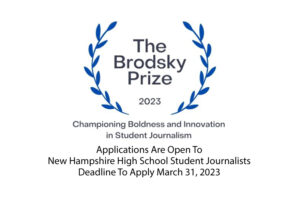 New Hampshire’s preeminent high school journalism award is inviting submissions for The 2023 Brodsky Prize, established by a former editor of the Manchester Central High School newspaper to encourage out-of-the-box efforts and innovation by a new generation of student journalists. The $5,000 Brodsky Prize is open to all New Hampshire high school students, attending public, charter, or parochial schools.
New Hampshire’s preeminent high school journalism award is inviting submissions for The 2023 Brodsky Prize, established by a former editor of the Manchester Central High School newspaper to encourage out-of-the-box efforts and innovation by a new generation of student journalists. The $5,000 Brodsky Prize is open to all New Hampshire high school students, attending public, charter, or parochial schools.
This year’s Prize is open to students using traditional print journalism and those producing news via electronic media, including broadcasting, podcasting, and blogging.
Judging criteria include a student’s journalistic initiative and enterprise, as well as what Jeffrey Brodsky calls “a contrarian nature and out-of-the-box thinking.” Interested students should submit examples of their work that are illustrative of the prize criteria, including links to electronic submissions, along with a completed application. Applications can be submitted to thebrodskyprize.org.
The deadline is March 31, 2023.
“Working on the school newspaper was the most formative and meaningful high school experience for me — more than any classroom,” Jeffrey Brodsky said. “It’s more important than ever for young journalists to push boundaries and to challenge authority, and they can start by using the power of their school paper just like the press in the professional world.”
When Brodsky, now 48, and Manchester Central classmate Misbah Tahir assumed co-editorship of the “Little Green” newspaper, they turned it into a broadsheet publication, added color photography, and introduced new design and typography. They revitalized a stagnant student newspaper circulation read by 20% of the school’s population, boosting readership to over 75% of Central’s students.
They also encouraged student reporters to ask tough questions and explore different topics. It was an editorial questioning the transparency of freshman class elections that got the two editors in trouble with the school administration, which felt identifying a faculty member in its criticism was out of line.
The two editors found themselves sidelined, briefly. Then, the school appointed a new faculty advisor and the paper was back in business, continuing to win local and national journalism honors. Brodsky was featured in the non-fiction book, “Death by Cheeseburger”, which chronicled censored high school journalism around the nation. Brodsky later testified before the New Hampshire House Judiciary Committee about student press rights.
After graduating from Central in 1992, Brodsky studied oral history and communications at Columbia University, becoming a historian and documentary producer, before illness forced his retirement and return to his hometown. At Columbia, his signature project was interviewing prominent politicians about their first political campaigns. Brodsky conducted extensive interviews with more than 84 U.S. governors, senators, two Speakers of the U.S. House, and heads of state from South America, Europe, Africa, and New Zealand. Brodsky wrote about his experiences in a feature article in The Washington Post Magazine, and Brodsky was extensively interviewed by Michel Martin for National Public Radio, NPR.
The Nackey S. Loeb School of Communications helps oversee the award program and provides one of the judges, Executive Director Laura Simoes. Longtime judges are Howard Brodsky, Jeffrey’s father, and Chairman and CEO of CCA Global Partners; Misbah Tahir, the former Little Green co-editor, now a biotechnology finance executive and former NH Union Leader and Sunday News president and publisher Joseph McQuaid, and Leah Todd, New England regional manager of the Solutions Journalism Network.
More information on The Brodsky Prize, including past winners, is available at brodskyprize.org. More information about the Loeb School can be found at loebschool.org.



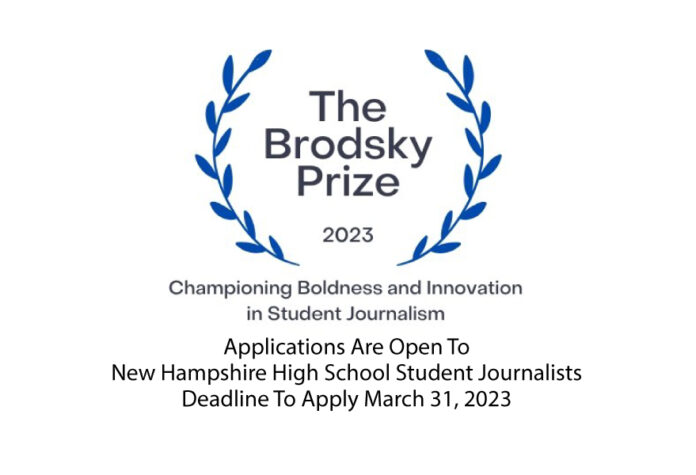
 New Hampshire’s preeminent high school journalism award is inviting submissions for The 2023 Brodsky Prize, established by a former editor of the Manchester Central High School newspaper to encourage out-of-the-box efforts and innovation by a new generation of student journalists. The $5,000 Brodsky Prize is open to all New Hampshire high school students, attending public, charter, or parochial schools.
New Hampshire’s preeminent high school journalism award is inviting submissions for The 2023 Brodsky Prize, established by a former editor of the Manchester Central High School newspaper to encourage out-of-the-box efforts and innovation by a new generation of student journalists. The $5,000 Brodsky Prize is open to all New Hampshire high school students, attending public, charter, or parochial schools.
 Congratulations go out to
Congratulations go out to 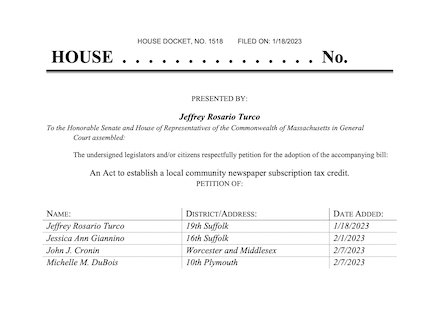

 The American Journalism Project, with support from the Google News Initiative, is launching a local news incubator. The program is intended to support entrepreneurs who want to explore launching a new nonprofit local news organization to serve their communities.
The American Journalism Project, with support from the Google News Initiative, is launching a local news incubator. The program is intended to support entrepreneurs who want to explore launching a new nonprofit local news organization to serve their communities.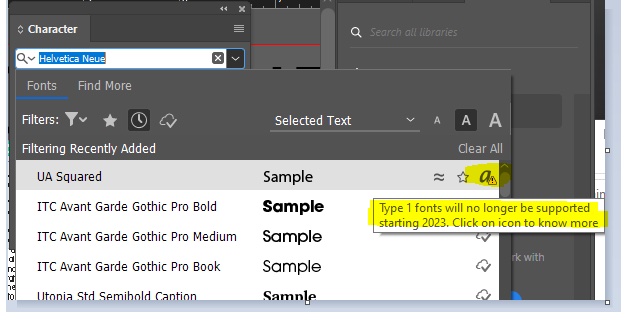

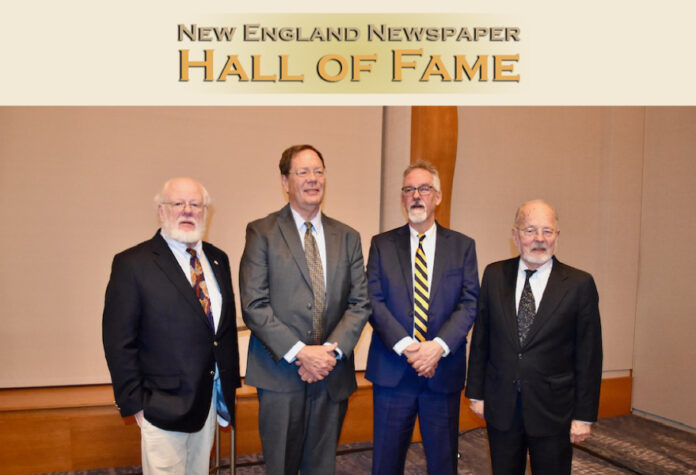


 In 2022, the
In 2022, the 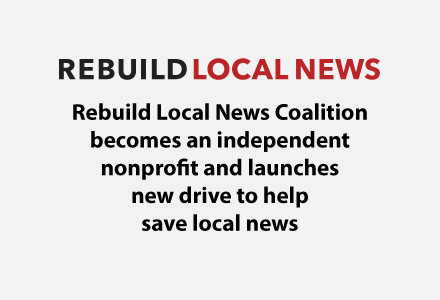

 Portland-based Pulse Research has announced the release of the 2023
Portland-based Pulse Research has announced the release of the 2023